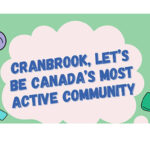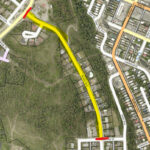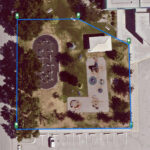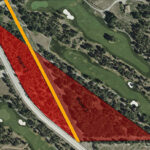Home »

Inspiring spaces
By Kathy Bonell
It’s not too late to take a trip to a pond and cut down a few cattail reeds to carry you through the winter months. This free renewable resource provides endless opportunities for families.
If cattail reeds aren’t available, adults can look to other items to spark children’s imaginations. Children’s interests and comments give adults clues about what to add to the environment. A basket of leaves might be of interest to one child. Another child might want to rope off an area. The stakes in the photo below are over-sized knitting needles. These knitting needles are a better choice for children because they aren’t as sharp as the tall thin pointed needles.
Adults support children’s creativity when they listen carefully to children’s ideas and then help them to collect the items they need to experiment with safe natural materials.
Adults can use the following tips while playing with children to help them become confident, creative, and patient individuals.
– Approach learning with a positive attitude.
– Ask yourself questions in the presence of children. For example, “I wonder how I can get the cattail reeds to stand up on their own.”
– Show children you may not have the answers, but that you are willing to find out. Not having the answers is a part of science and scientific processes.
– Verbalize what children see, hear, smell, taste, and touch. Focus on concrete characteristics such as colour texture shape size weight and function.
– Encourage children to notice similarities and differences between items.
– Identify yourself as a helper in their experimentation.
– Let children know you are interested in learning as much as you can from them.
If playing is a new experience for you, then set goals for yourself. It is easier for adults and children to enjoy their interactions with one another when the play environment is fun and relaxing.
Learning Goals for Adults
Model how to experiment with natural materials;
Play with and alongside children without taking over;
Request an item;
Offer an item;
Introduce new words;
Experiment with prepositions such as under, over, inside, and outside;
Be open to children’s discoveries;
Set up the play space so children are safe;
Give children plenty of uninterrupted play time.
It is okay if children’s ideas don’t turn out the way they anticipated. Making mistakes and starting over is a life skill that serves children and adults equally well.
– Kathy Bonell is the owner and lead instructor of the Rural Communities Early Childhood Institute (RCECI). Kathy is also a licensed Early Childhood Educator in British Columbia. She has a Bachelor of Arts degree in Child and Youth Care and a Master’s degree in Human Development with a specialization in Human and Social Services. Kathy brings 25 years of teaching experience in post-secondary environments to the Cranbrook Early Years Committee in addition to her direct work with children, families, and community practitioners in early childhood settings.
Cranbrook Early Years Committee







